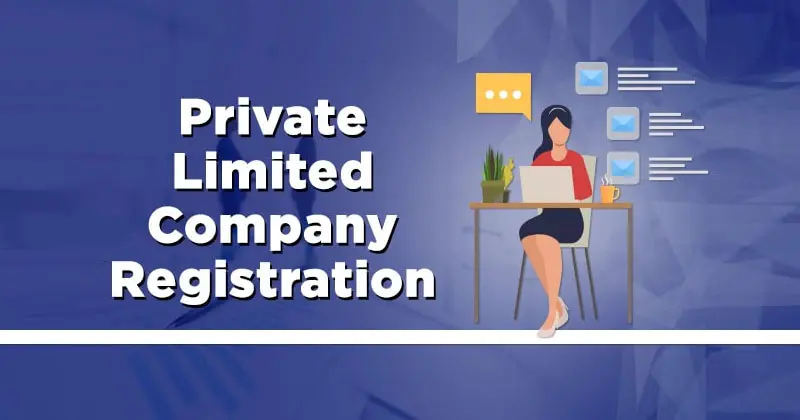In India, private limited companies are required to adhere to certain annual compliance requirements under the Companies Act, 2013. Failing to meet these compliance obligations can lead to penalties, fines, and even the striking off of the company’s name from the Registrar of Companies (RoC). Ensuring timely and accurate compliance is crucial for maintaining a company’s good standing and avoiding legal complications.
In this blog, we will explore the annual compliance requirements for a Private Limited Company, and how the process ties back to the initial Private Limited Company Registration in India and Pvt Ltd Company Registration in India.
What Is a Private Limited Company?
A Private Limited Company (Pvt Ltd) is a type of company that has its shareholders’ liability limited to the amount unpaid on shares held by them. This structure is widely chosen by entrepreneurs because it offers flexibility, limited liability, and the ability to raise funds from venture capitalists or angel investors.
When you register a company in India, whether it’s a startup company or an established business, it is crucial to understand the ongoing compliance requirements. For those wondering how to register a company in India, the process typically involves registering with the Ministry of Corporate Affairs (MCA), obtaining a Director Identification Number (DIN), Digital Signature Certificate (DSC), and drafting the Memorandum of Association (MOA) and Articles of Association (AOA).
Once you’ve completed your Pvt Ltd Company Registration in India, annual compliance becomes an essential part of keeping your business running smoothly and legally. Below are the key compliance requirements every private limited company must fulfill.
1. Filing of Annual Return and Financial Statements
After registering your company, one of the most important ongoing responsibilities is filing your annual return with the Registrar of Companies (RoC). The Annual Return includes details about the company’s shareholders, directors, and corporate structure.
- Form MGT-7: This form contains information about the company’s shareholders, directors, and general meeting, and must be filed every year with the RoC.
- Financial Statements: Every private limited company must prepare financial statements, including the Balance Sheet, Profit and Loss Account, and Cash Flow Statement, and file them with the RoC. The filing is done through Form AOC-4.
These documents need to be signed by the company’s directors and auditors before submission. The filing must be completed within 30 days of the Annual General Meeting (AGM).
2. Holding of Annual General Meeting (AGM)
A private limited company must hold an AGM every year, within six months of the end of its financial year. The AGM serves as a forum where shareholders can discuss the company’s financial performance, approve financial statements, and appoint directors or auditors for the upcoming year.
- First AGM: For a new company, the first AGM must be held within nine months from the end of the first financial year.
- Subsequent AGMs: After the first AGM, subsequent AGMs must be held within six months from the end of each financial year.
Not holding an AGM can result in penalties and fines, making it a crucial compliance activity.
3. Maintenance of Statutory Registers
Private limited companies must maintain various statutory registers that provide details about shareholders, directors, and other key company operations. These registers must be kept updated and available for inspection by relevant authorities. Some of the key registers include:
- Register of Members
- Register of Directors and Key Managerial Personnel
- Register of Charges
These records must be accessible at the company’s registered office during business hours.
4. Filing of Income Tax Returns
Every private limited company is required to file an income tax return with the Income Tax Department. This is mandatory regardless of whether the company has made a profit or not.
- The Income Tax Return (ITR) is typically filed by the due date (usually September 30th) after the close of the financial year.
- Along with the tax return, the company must also file Form 3CD, which provides a detailed report of the company’s finances and transactions.
Failure to file the tax returns on time may result in penalties or interest charges.
5. Appointment of Auditor
A private limited company is required to appoint an auditor within 30 days of Private Limited Company Registration in India. The auditor is responsible for auditing the company’s financial statements each year.
- The first auditor is appointed by the board of directors within 30 days from the date of incorporation.
- Subsequently, the company must appoint or re-appoint the auditor at the AGM every year.
The auditor’s report is an important part of the company’s financial statements and must be submitted to the RoC during annual filings.
6. Director KYC Compliance
As per the Ministry of Corporate Affairs (MCA), all directors of a private limited company must update their KYC (Know Your Customer) information with the MCA annually. This involves filing DIR-3 KYC form to provide updated contact details and other personal information.
This form must be filed by September 30th of every year, and failing to do so may result in the directors being marked as “inactive.”
7. Payment of Annual Fees
In addition to the compliance requirements mentioned above, companies must also ensure they pay their annual fees to the RoC. These fees are based on the company’s authorized share capital and need to be paid before the due date to avoid penalties.
How to Ensure Compliance?
It’s essential to have a clear understanding of these annual compliance requirements and meet them on time. To make the process easier, you can opt for Company Registration online in India or use the company registration online in India services for ongoing compliance needs. Additionally, working with professionals such as chartered accountants or company secretaries can help you stay on top of regulatory requirements and deadlines.
Conclusion
Annual compliance is an integral part of maintaining a Private Limited Company in India. From filing your annual return to conducting your AGM, there are numerous steps to follow to ensure that your company remains legally compliant. The process begins with the Pvt Ltd Company Registration in India, but it continues through the company’s lifecycle.
For entrepreneurs who are wondering how to register a company in India or are looking to register a startup company in India, it’s essential to familiarize yourself with these ongoing compliance requirements. The earlier you understand these obligations, the smoother your business operations will be.
By staying on top of your company’s annual compliance, you ensure that your company remains in good standing, and you avoid penalties and legal complications. If you need guidance or support in ensuring compliance, consult with professionals who specialize in Company Registration in India and annual compliance services.









